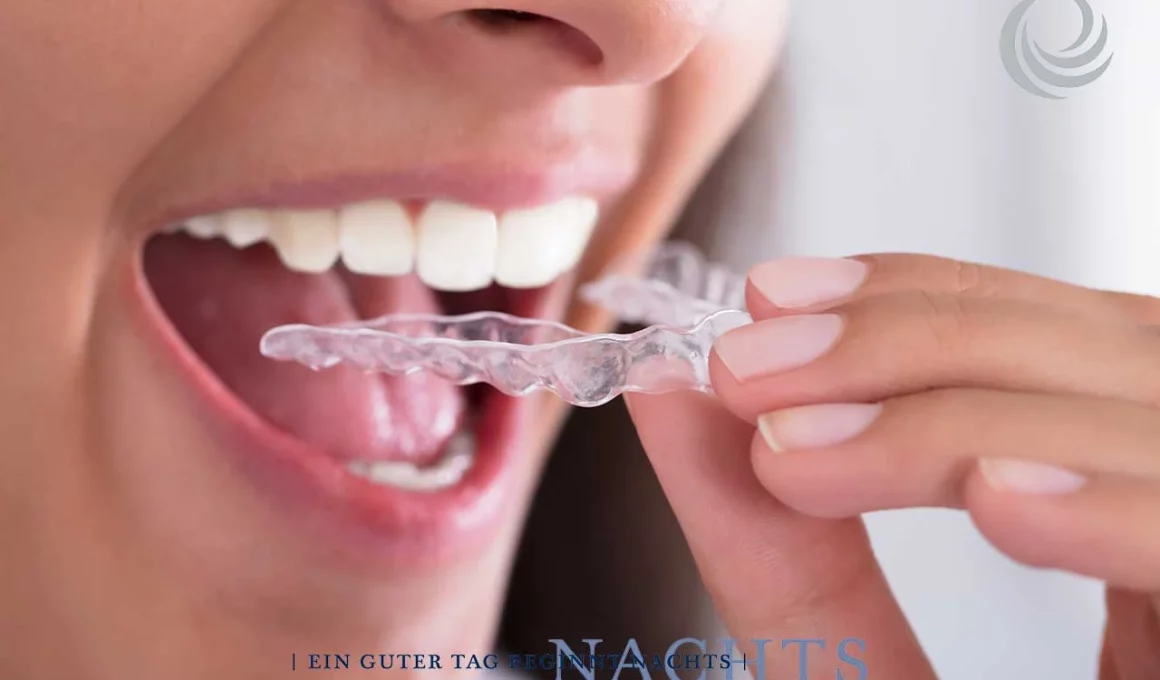Teeth grinding during sleep – an outlet for stress relief
Juggling work and family, work and everyday life is a stress test for many people, which can be particularly noticeable at night: Teeth grinding during sleep is often the result of stress and tension, which are dealt with during the body’s night-time regeneration phase. However, health issues such as incorrectly fitted dentures or problems with the temporomandibular joint can also be the cause of teeth grinding during sleep.
Stress gets to us during sleep
Most Germans have already had personal experience of teeth grinding: almost 90% of all Germans have clenched and ground their teeth in their sleep at some point in their lives. However, only around 10 to 20% of them are aware of this, as teeth grinding, also known as bruxism, usually occurs unnoticed during sleep.
During sleep, our body regenerates physically and mentally. The experiences of the day – both positive and negative – are processed during sleep. Particular strains such as stress and tension can cause the chewing muscles to tense up during sleep. Clenching our teeth is a way for our body to cope with the impressions and experiences of the day and to reduce stress, inner tension and frustration during sleep.
Bruxism leaves its mark
But teeth grinding during sleep is not without consequences. The chewing muscles are particularly strained by grinding during the night. Painful jaws and tense chewing muscles in the morning are often a sign of teeth grinding. The nocturnal stress reduction also leaves its mark on the teeth. Severe signs of wear on the chewing surfaces, as well as damage to the tooth enamel, receding gums, bleeding gums and loose teeth can be the result of bruxism.
Tension and headaches due to teeth grinding
Teeth grinding during sleep also has an impact on our neck and back muscles. The strong clenching of the jaw and the high tension of the jaw muscles can lead to neck pain, back pain and headaches, which often only become noticeable the next day.
Proven remedy: grinding splint
Many sufferers are first made aware of teeth grinding during sleep by their dentist or partner. In the former case, this often only happens when the consequences of teeth clenching during sleep are already clearly visible. It is then high time to put a stop to the night-time teeth grinding in order to prevent further damage. An effective remedy for teeth grinding is the grinding splint, also known as a dental splint or occlusal splint.
The sturdy plastic splint is placed on the teeth of the upper or lower jaw before going to bed and ensures that the teeth can no longer be pressed together. On the one hand, the splint protects the teeth and, on the other, it often significantly reduces the tensing of the jaw muscles at night.
Teeth grinding during sleep: no cure possible
However, a dental splint only alleviates the symptoms of teeth grinding, it cannot treat the cause. However, there are other ways to slow down and switch off from everyday life and thus prevent teeth grinding. Relaxation exercises, yoga, autogenic training and meditation can help those affected to consciously tackle tension, inner tension and stress, loosen the muscles and thus gradually reduce teeth grinding during sleep.
Age can also lead to a significant improvement in bruxism: Although even babies and children can be affected, most people grind their teeth between the ages of 20 and 40. In older people, on the other hand, teeth clenching only occurs occasionally.














